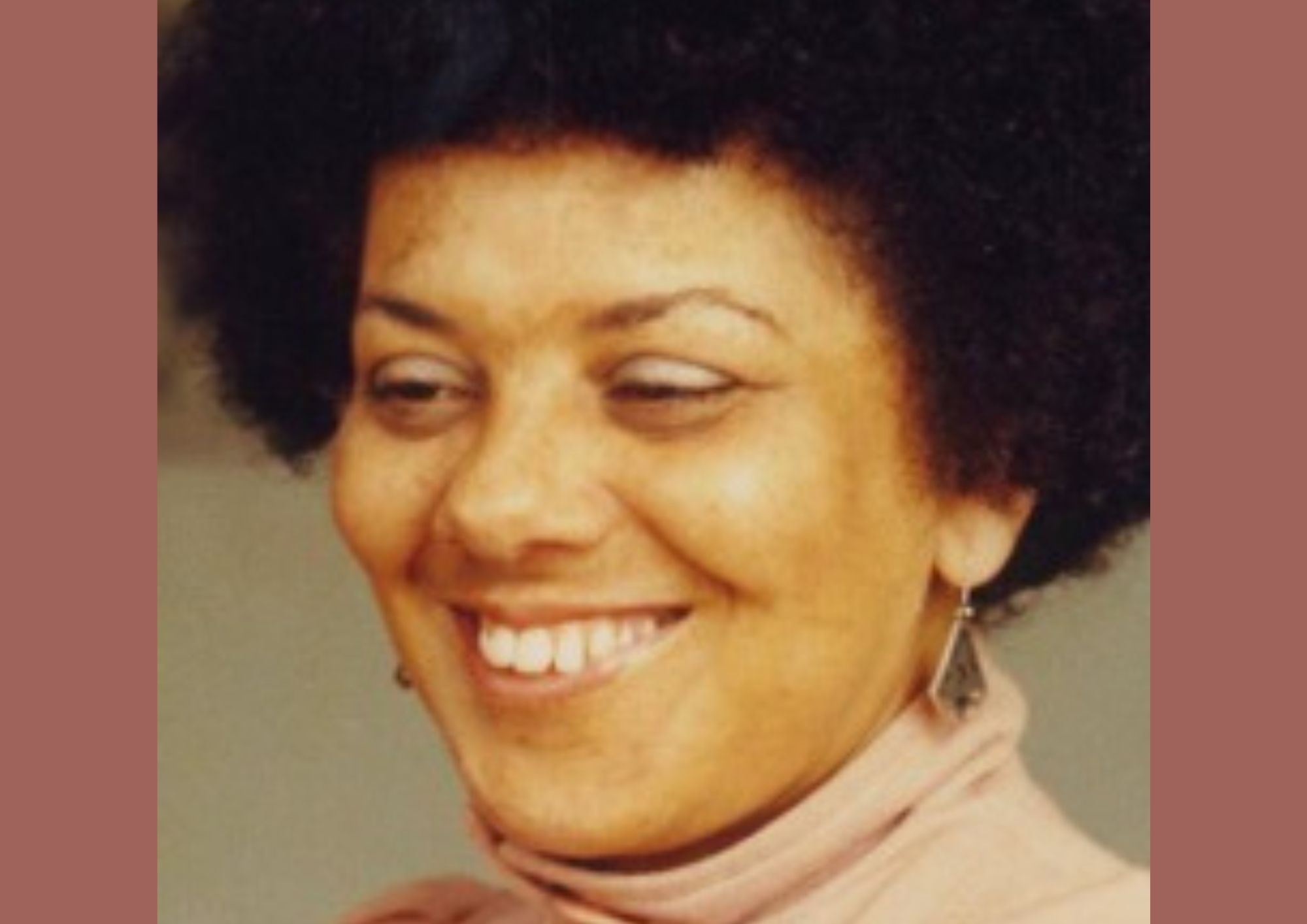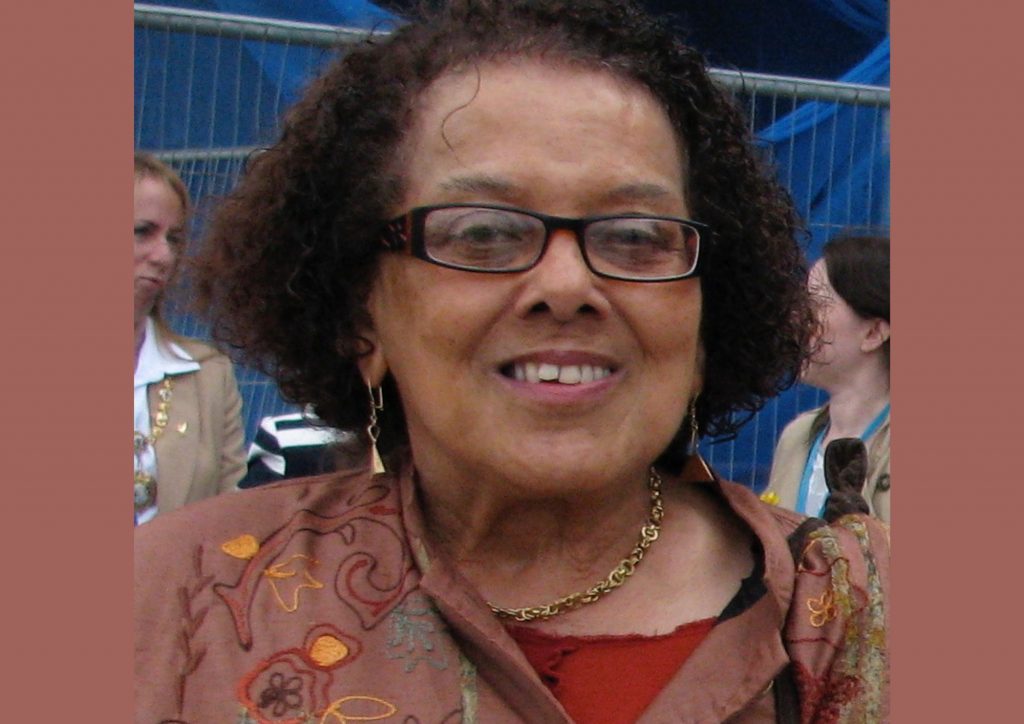Dorothy Kuya was too often overlooked but now you can hear her story
SALUTING OUR SISTERS: New podcast series charts campaigns from Islington to Merseyside
Thursday, 12th October 2023 — By Angela Cobbinah

Dorothy Kuya campaigned for a museum about slavery in Liverpool
THE first time I saw Dorothy Kuya in action was when she was member of the Broadwater Farm Inquiry into the causes of the eponymous riots of 1985.
As she spoke her mind in her spirited Scouse way without ever missing a beat, or questioned witnesses with a scary mix of precision and flinty charm, I thought this is someone you’d definitely want on your side in a battle.
That was precisely why she’d been selected for the Lord Gifford-chaired panel. Her reputation as a formidable operator who had helped take the anti-racist struggle to the top table had already been demonstrated when she was appointed the first race relations chief of Haringey Council in 1979, having already worked in that pioneering role in her native Liverpool a few years earlier.
As one of the ablest civil rights campaigners around, her CV rapidly grew and didn’t stop when she left her tiny flat in Gillespie Road, Highbury, in the early 1990s to return for good to Liverpool, where she would be pivotal in the establishment of Europe’s first slavery museum, one of her proudest achievements.
Forthright but never seeking aggrandisement, yet overlooked by the media, by the time she died in 2013 aged 80 only one newspaper feature had ever been written about her, and that was by me. Outside of Liverpool she is largely unknown.
Now that is hopefully about to change with the release of a five-episode podcast exploring her life and legacy with the help of family, friends and colleagues, among them the former Labour leader, Jeremy Corbyn.

Dorothy Kuya
The two and a half hours of recording bring alive Dorothy’s personal papers that have been loaned to National Museums Liverpool by the Kuya family. Originally comprising 45 crates of remarkable material that she had stored away, the archive was launched in July, uncovering the minutiae of her work and activism that began as a 13-year-old standing on a soap box to address street corner meetings on behalf of the Communist Party and would see her play an influential role in Teachers Against Racism and the National Assembly of Women, just two out of a long list of organisations she championed.
“Dorothy’s life is so incredible,” said Janaya Pickett, who coordinated the project for Writing on the Wall on behalf of National Museums Liverpool. “I am completely overwhelmed by her devotion to the task at hand, her confidence and her fearlessness.”
The daughter of an English mother and West African father, Dorothy’s radicalism was rooted in the area she grew up in, Liverpool 8, home to the country’s oldest black community.
She often recalled that despite living there for centuries, black people were still not welcome in the city centre, a 20-minute walk away.
The Dorothy Kuya Archive Podcast takes us on an engaging tour through her early years, revealing how the discrimination she and her family faced politicised her.
Angry but determined to fight back, she joined the Young Communist League, training ground for would-be Communists, a move that would provide her with an ideology and also the erudition, skills and opportunities that formed the foundation of her life as a dedicated activist.
We hear about a classic photo showing Dorothy as an eager, fresh-faced 15-year-old sitting alongside Paul Robeson during his 1949 visit to Liverpool. A year later, at the World Peace Congress in Sheffield, she would be greeting one of the speakers, Pablo Picasso.
Dorothy left school at 15 and worked as a secretary before training as a nurse in 1954, then switching careers a few years later to become a teacher.
Her first teaching post was at Edith Neville Primary School in Somers Town, setting her on a campaign path in which education and young people would take centre stage. Her ascent into the national arena took place in the dark days of the 1970s when racism was all pervasive and would fuel the seminal nationwide riots the following decade.
It was during this time that Jeremy Corbyn worked with her as a young Haringey councillor.
In the podcast he remembers how effectively she dealt with elements in the council resistant to change: “She was a force of nature, diplomatic when she needed to be and incredibly assertive. It was a pleasure to know her and I consider her one of my teachers.”
Back in Liverpool and now in her 60s, Dorothy was not done yet, leading the crusade to get the city to acknowledge its murky role as Britain’s biggest slave trading port.
This culminated in the opening of the International Slavery Museum in 2007 by Paul Robeson Jnr. The date was August 23, Slavery Remembrance Day, which Dorothy had been instrumental in establishing as an annual event on Liverpool’s cultural calendar.
Among the guests at its 1999 inauguration were Bernie Grant, erstwhile leader of Haringey Council, and his wife Sharon. Teenage diaries, committee meeting minutes, from the Movement for Colonial Freedom to the Granby Residents Association she chaired in later life, and even a travelogue detailing her journey to Moscow in 1954 as a delegate to the World Youth Festival, are among the fascinating sources used.
She quickly emerges as an extraordinary woman who didn’t suffer fools gladly but was always kind and generous, and, above all, someone keen to galvanise others to rise alongside her.
“I found her such an inspiration and hopefully her life and story will inspire others too,” said Ms Pickett.
The Dorothy Kuya Archive Podcast for Writing on the Wall is available to listen to on Spotify and SoundCloud.
This feature is part of our Black History Month special edition

